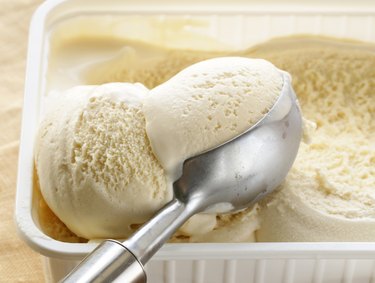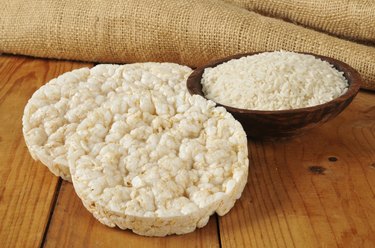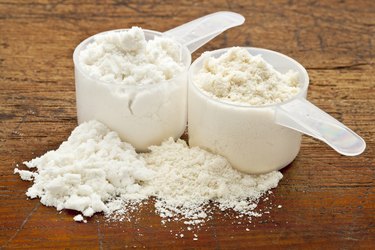
Psyllium has gained attention as a potent source of cholesterol-reducing, bowel-enhancing fiber. Psyllium is a soluble fiber that comes from a shrub-like herb, Plantago psyllium, grown primarily in India. Psyllium may help reduce the risk of cancer, diabetes, heart disease, diverticulosis, high blood pressure and obesity, and can improve diarrhea, constipation, gas, irritable bowel syndrome, inflammatory bowel disease and high cholesterol. Available as a dietary supplement and in pharmaceutical laxative products, psyllium may bestow greater benefits when consumed with food rather than as a dietary supplement.
Cereals
Video of the Day

Psyllium is a central ingredient in many high-fiber cereals, and often combined with wheat and oats. As a soluble fiber, psyllium provides nourishment for friendly bacteria in your gut, according to GI Care. When psyllium is combined with the 90 percent non-soluble fiber of wheat, you get the bacteria-enhancing effect from psyllium and an enhanced scrubbing effect of wheat fiber. Psyllium fiber expands in the stomach to help you feel full, and because it takes a while to digest, stabilizes your blood sugar and helps you to feel full longer.
Video of the Day
Ice Cream

You might be surprised to find that a single serving of many ice cream and frozen desert products contain more fiber that a typical slice of whole wheat bread. Responding to the demand for healthier treats, ice cream manufacturers are increasingly using psyllium fiber as a thickening agent and fiber-booster helping to compensate for the fat and cholesterol these frozen treats usually deliver. Be mindful with portion control as even with fiber and reduced fat, most ice cream and frozen products still have a lot of calories.
Baked and Manufactured Goods

Psyllium adds bulk to foods and enhances the fiber content, a matter which increasingly serves as a marketing point for manufacturers. Health drinks, bread, biscuits, rice cakes, instant noodles and other bakery products may contain respectable amounts of psyllium. Read the labels to see if psyllium has been included. Look for the ingredients psyllium, psyllium seed, psyllium husk, ispaghula, ispaghula seed or ispaghula husk.
DIY

Take the lead of food manufacturers and enhance the fiber-content of foods and baked goods by adding psyllium powder to your favorite recipes. In baked goods, add the powder as a final step while mixing. Add 1 to 3 tbsp. of powder to your smoothie or other beverage. You can also use powdered psyllium as a binder in no-bake crusts. Add psyllium to your diet slowly, incorporating small amounts to recipes gradually to give your body time to acclimate to the increased bulk, and to confirm that you are not one of those rare people who have an allergic response to the psyllium.